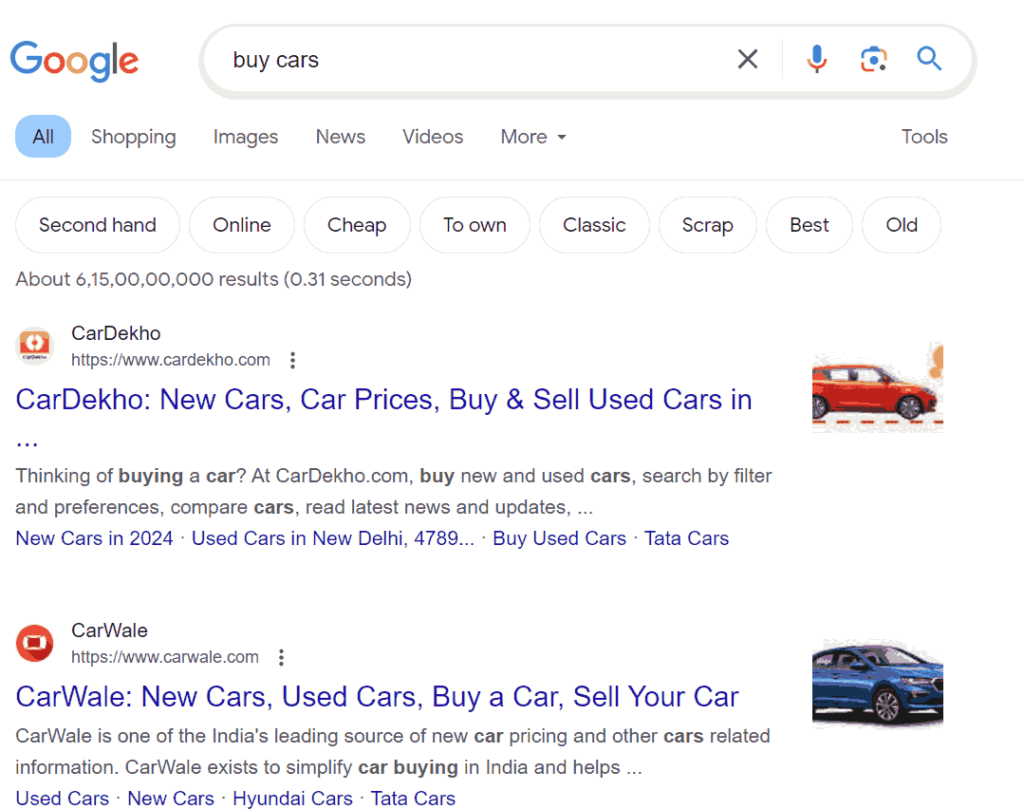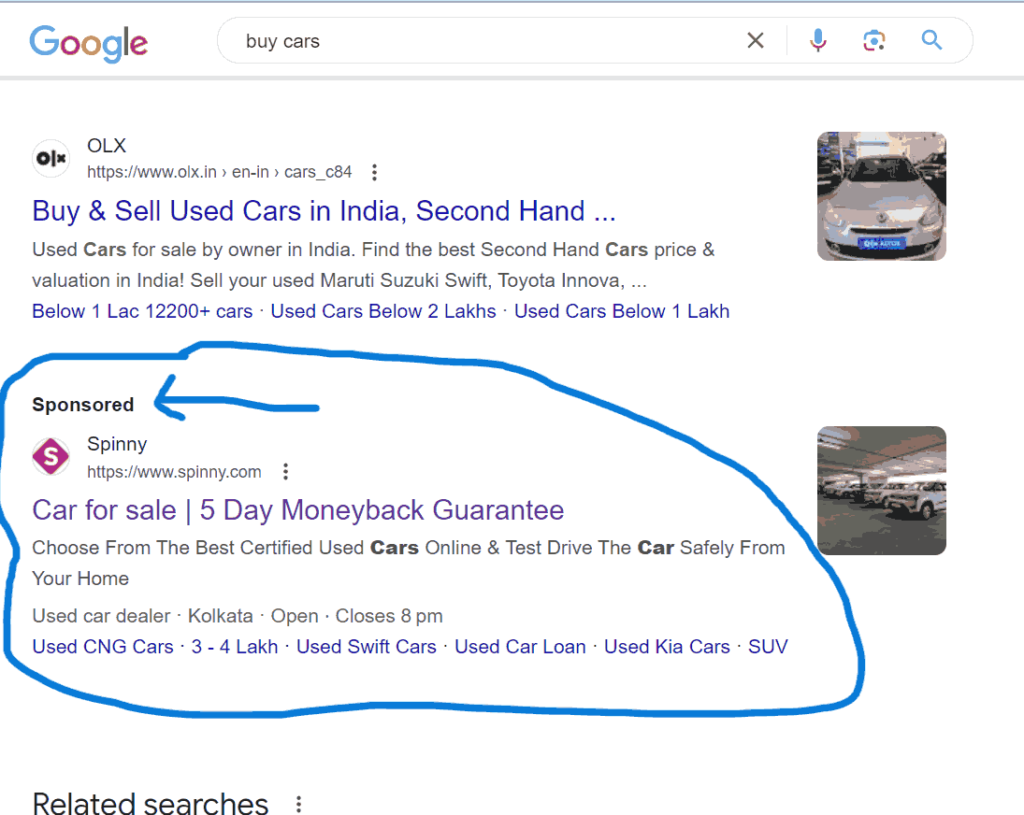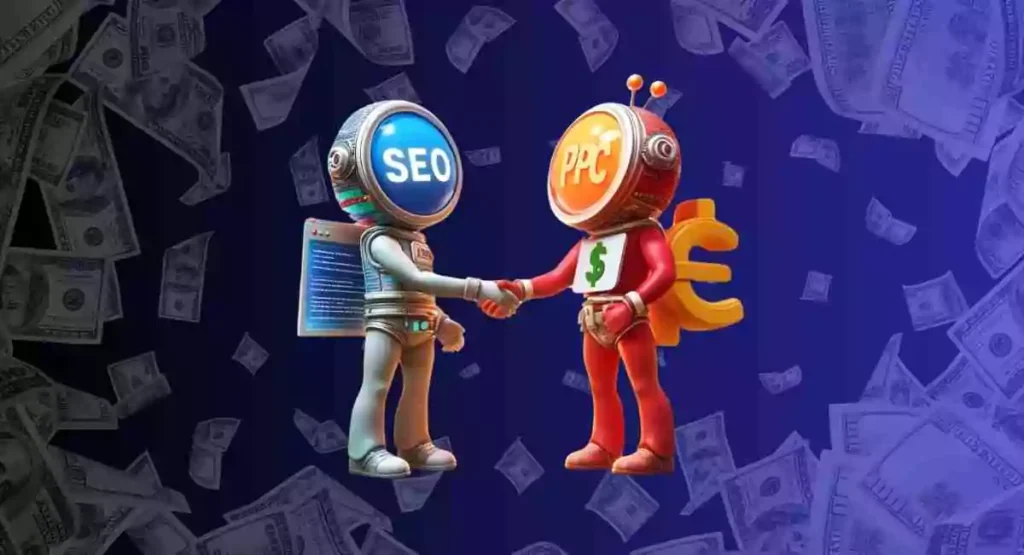Whenever a new business enters the market, they often have budgets in mind, and they know that for a business to run smoothly and generate a significant revenue, spending on advertising is crucial. However, what happens when you have a small business with a limited budget? Do you just give up on your business? Absolutely not! SEO plays a pivotal role in establishing a business. Businesses that neglect SEO will find their marketing efforts, including PPC (Pay-Per-Click), less effective. Contrary to viewing it as SEO vs PPC, a successful brand or company integrates both strategies. In this article we are going to learn about the differences between both of them and what should a business prefer here SEO or PPC or SEO Plus PPC?
How PPC is Different from SEO?
PPC, which stands for “Pay-Per-Click,” implies that you pay a fee to search engines each time someone clicks on your ads. It’s a direct cost incurred with each click, directly linked to your advertising efforts. On the other hand, SEO (Search Engine Optimization) involves optimizing your site for search engines for free. Simply put, it’s like telling search engines such as Google and Bing about your website in their language.
While PPC starts with a fee, SEO begins for free, offering long-term value without the immediate cost. This fundamental difference in cost and approach significantly affects their applications and outcomes for businesses, especially those with limited budgets.
Difference between PPC and SEO
1. COST
SEO can generate organic traffic at no direct cost. It is a long-term investment in your website’s visibility and credibility.
PPC, however, costs you with every click. Each interaction is quantifiable and paid for, which can quickly add up.
Example: Consider a small business that hasn’t invested in SEO and jumps straight into PPC to drive more followers to an Instagram page or website. You might pay to promote a post and initially attract followers, but if these new visitors don’t find other interesting content on your site or Instagram, they will likely unfollow or unsubscribe. This makes your investment in PPC wasteful without a solid SEO foundation, which should include a well-optimized Instagram profile with 20-30 posts and at least 10 quality articles on your website.
2. SERP PLACEMENT
SEO doesn’t guarantee top placement immediately but can achieve superior rankings with excellent page experience and high-quality content.
PPC ads typically appear at the top of the search results page, ensuring visibility but at a cost.

Example: Searching for “buy cars” might show top listings that are not sponsored. These listings have achieved high ranks due to superior on-page content, better user experience (UX), fast loading speeds, and unique, user-friendly content that can even outrank PPC.

3. DEPENDENCE ON
SEO requires you to consistently create and optimize content to compete for keywords.
PPC demands constant financial investment. If your budget runs out, your ads disappear.
When the budget for PPC runs dry, businesses often turn their focus back to SEO, which, unlike PPC, continues to drive benefits even when active investment stops. Sometimes, SEO can even yield greater long-term benefits than PPC.
4. TIMES TO ROI (Return on Investment)
SEO involves a slower process; it starts with a trickle of traffic and grows over time as your site gains authority and rankings.
Conversely, launching a PPC campaign can be almost instantaneous, taking just a few days to set up and start driving traffic.
Example: For indexing a single page on Google, it may take anywhere from 24-48 hours to several weeks. However, a PPC campaign can begin driving traffic within hours. If a business seeks immediate growth and returns, PPC is often the preferred choice. Yet, this approach carries risks if foundational SEO is not in place, as it may not foster a strong, long-term relationship with customers.
5. TRACKING AND ANALYTICS
SEO offers good tracking capabilities with tools like Google Analytics 4 and Google Search Console. These tools provide insights into your website’s performance and audience behavior.
On the other hand, PPC provides advanced tracking options, giving you detailed data on reach, impressions, cost per result, total amount spent, clicks, cost per click (CPC), click-through rate (CTR), page engagement, and more.
Example: PPC’s advanced tracking allows immediate understanding and optimization based on real-time data, whereas SEO provides a broader but slower-to-compile picture of audience engagement and site performance.
6. TARGET USERS BASED ON
SEO targets users based on keywords, geography, and language, primarily through organic content that aligns with what your audience is searching for.
PPC allows more refined targeting, including keywords, geography, device, language, time of day, week, user interests, and behaviors. This granular control means that PPC can adapt quickly to audience preferences and market trends.
Example: In SEO, your content might initially reach a broad audience, and over time, you’ll gather data about where most of your visitors come from, which can inform future content development. In contrast, PPC campaigns utilize advanced tools that immediately adjust ads based on user data and preferences, thus saving time and potentially increasing effectiveness.
Conclusion on SEO Plus PPC
For any business, especially small businesses, balancing SEO and PPC offers the best approach to digital marketing. While SEO builds a strong foundation and ensures long-term visibility and credibility, PPC drives immediate results and can quickly adapt to market dynamics. Ideally, businesses should not choose between SEO and PPC; instead, they should aim to integrate both strategies to enhance their digital presence and achieve sustained growth. A dual approach where teams focus on both SEO and PPC can significantly amplify a business’s impact in the market.
Ready to boost your business’s online presence?
Content Ladder excels in providing both SEO and PPC services, specifically for businesses operating on limited budgets. Known for their reliability and consistent availability for meetings and calls, Content Ladder can leverage effective digital marketing strategies to reach the brand’s target audience. Ready to boost your business’s online presence? Book a meeting or call with Content Ladder today.
For more information, email us at info@contentladder.in or call us at 9330576282 / 8420588781.

